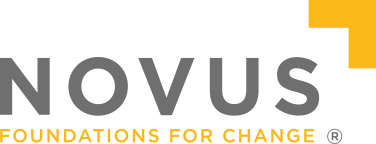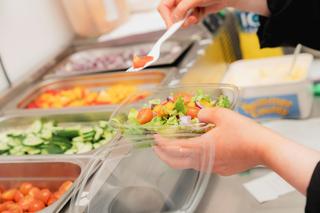Supporting Women in Prison Education
Adult Provision

At Novus, we’re committed to supporting women in prison through tailored education and employment programmes.
Women in prison face different challenges to men, and that means their learning needs are different too. We work closely with female learners to understand those needs and offer the right support, both during their sentence and after release.
With the help of our provision partners, we’re creating opportunities that help women gain confidence, skills, and a fresh start.
Keep reading to see how we’re making a difference.
Challenges faced by women in prison education
Women in prison often have lower levels of education with 71% of women entering prison having no qualifications. Supporting women into education and employment is vital to giving them the best chance once released and reducing reoffending rates.
We face many challenges when it comes to engaging women in prison education as over three out of five women are sent to prison for sentences less than six months.
This means learners only have a limited time to engage in education alongside other key services and interventions which they often miss out on.
Many women in prison have had a negative relationship with education. Research suggests that 31% have been expelled or permanently excluded from school, which could also affect their prison learning experience.
Changing their perspective on education from a negative to a positive is key to engaging learners in education.
Providing prison learners with the support and resources necessary to be able to engage in prison services is important to equip them with the necessary skills to have better opportunities upon release.
Tailoring education programmes for women in prison
In previous years, we've worked to make sure that women can access education while in prison.
As mentioned, women have significant barriers to entry into education from shorter sentences to the lack of confidence in taking part in education.
That’s why, at Novus, we’re constantly tailoring prison learning and enrichment to be inclusive for all learners.
There are various education programmes that we provide to women in prison, including academic and vocational courses.
Women who participate in educational programmes while in prison are more likely to find employment after release and less likely to reoffend.
That’s why we encourage our female learners to participate in vocational and technical education, to gain industry specific skills, training and useful qualifications.
The impact of education on women's re-entry success
A popular area amongst our female prisoners is the hair and beauty courses: through them learners are gaining industry specific qualifications to support themselves and gain employment after release.
Qualifications like these give women independence and confidence not only helping them to find employment on release, avoiding them to re-enter the same cycles of abuse and domestic violence that most of the female prison population have experienced.
'Good' Ofsted rating for HMP Askham Grange
Recently, HMP Askham Grange received a 'Good' Ofsted rating where Novus provide the education provision. The female prison, received fantastic feedback in key areas of their education provision including:
- Staff training and planning
- Supporting learners in reading
- Vocational training to support learners into jobs after release
We aim to provide the best education to all learners and are constantly trying to better our education provision which has been recognised by Ofsted.
The education programmes we provide are helping female prisoners at HMP Askham Grange to gain qualifications and future employment.
To find out more about the education provision at HMP Askham Grange read the full Ofsted report here.
Reading initiatives for prisoners at HMP New Hall
HMP New Hall have been using In-Cell technology to provide more reading initiatives and to engage learners in reading.
Tayla Allen and Joe Brewerton, tutors at HMP New Hall, created a podcast called 'Page Turners' that aims to get rid of the barriers of reading.
The use of In-Cell technology has also helped to introduce a range of reading initiatives, including Drop Everything and Read (DEAR), reading groups, and other prison-wide activities.
Supporting women in prison education
At Novus, we’re proud to support women in prison through education that builds confidence, skills, and positive opportunities.
If you want to learn more about the work we do in prisons, talk about working with us, or help us support more women in making a fresh start, contact us today.
Education for women in prison - FAQs
What kind of education can women do in prison?
Women in prison can take part in courses like English, maths, and digital skills, as well as hands-on training like hair and beauty, catering, or construction. These lead to recognised qualifications to help them find work after release.
How do women start learning in prison?
When a woman arrives in prison, she has a short assessment to see what support she needs. From there, staff help her find the right course based on her skills and goals.
Why is education important for women in prison?
Most women in prison haven’t had many chances in education before. Learning helps build confidence, develop skills, and makes it more likely they’ll get a job and stay out of prison after release.
Are there courses designed especially for women?
Yes. Some courses are made with women’s needs in mind, like shorter sentences, caring responsibilities, and past trauma.
They offer support with building confidence, wellbeing, and skills that can lead to real jobs.
What happens after release?
Engaging in prison education can lead to better job opportunities after release. It also gives women better chances of rebuilding their lives and staying out of prison in the future.


